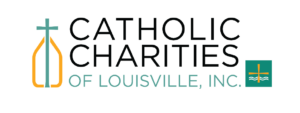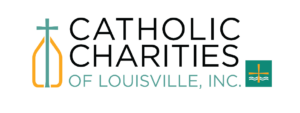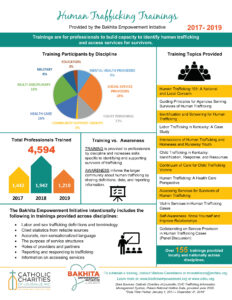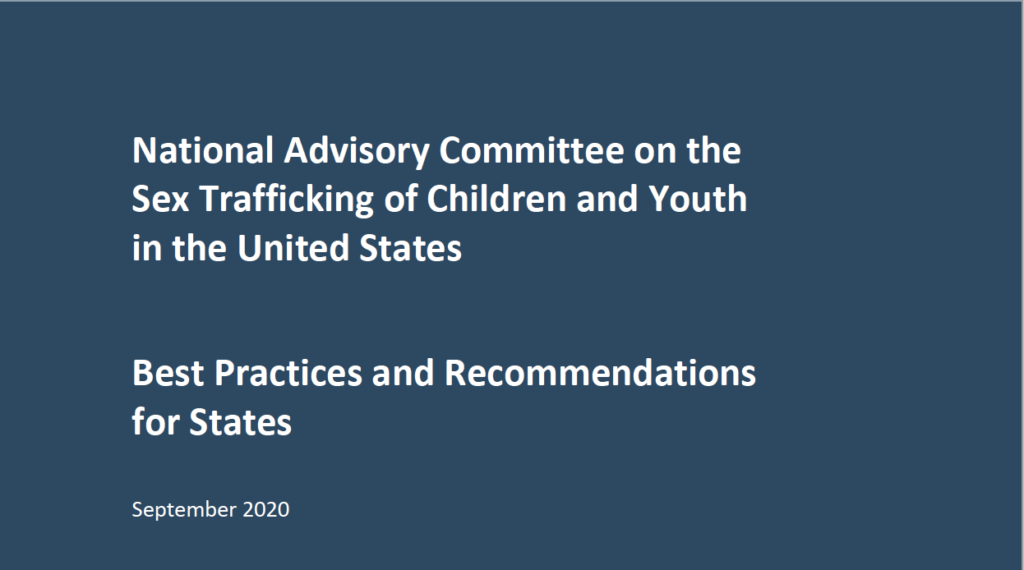Providing direct assistance and case management to survivors of human trafficking, this program also aims to educate the community about human trafficking, as well as how to identify individuals who are being forced or coerced for the purpose of sexual exploitation or labor.
We recognize the primary role each survivor has in exiting their own trafficking experience and our role in coming alongside survivors to provide supportive services on an individualized basis. This approach restores power, which is vital to achieving self-sufficiency. We also offer My Life My Choice, a ten-session, nationally acclaimed prevention and support group curriculum that is used to educate and empower girl-identifying youth ages 11-18. Victims come from all demographics and include young children, teenagers, men and women. The Bakhita Empowerment Initiative works with willing clients who are seeking ways to emancipate themselves and begin a new life, self-empowered and independent.
 We offer My Life My Choice, a ten-session, nationally-acclaimed and evidence-informed prevention and support group curriculum that is used to educate and empower female identifying youth ages 11-18.
We offer My Life My Choice, a ten-session, nationally-acclaimed and evidence-informed prevention and support group curriculum that is used to educate and empower female identifying youth ages 11-18.
We offer the same group for male-identifying youth, following “I Am Building a Healthy Identity,” by Stefania Agliano and Bryan Hall.
Both of these programs are dedicated to educating and empowering adolescents to recognize and defend themselves against inappropriate demands, and to work towards a society that does not tolerate buying and selling children.
Contact Tamar Israel for more information at tisrael@archlou.org.
Program services focus on meeting program participants where they are. Supportive services may include case management, language access, basic needs, housing, crisis response, legal services, mental health services, job development, repatriation, tattoo removal.
Case management may include accompanying program participants to service appointments, court dates and interviews with law enforcement; advocating with service providers and community partners; assisting with applications for benefits; assessing needs, setting goals and devising a safety plan; offering ongoing personal support; and assisting with accessing services.
Click on an image below for the full report.

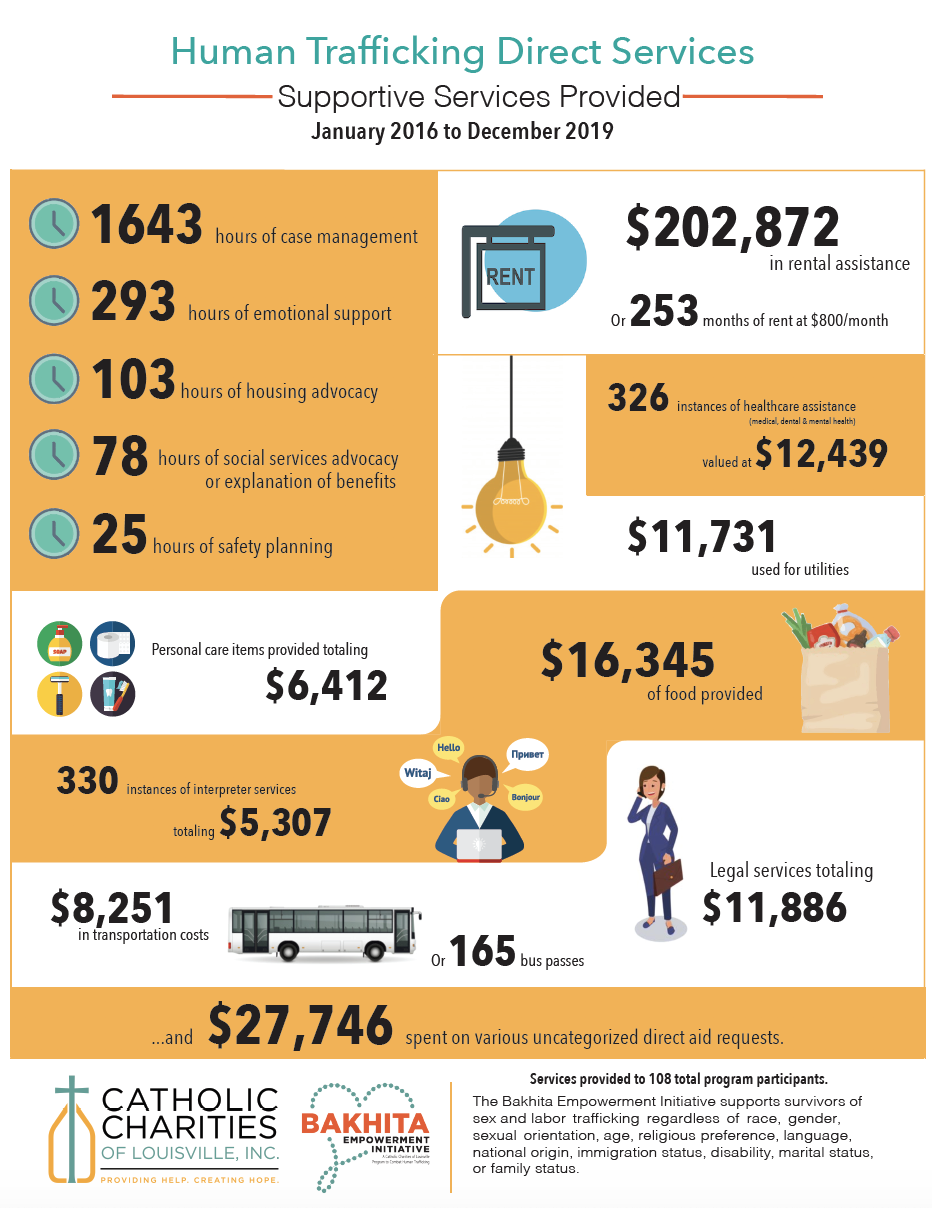
Bakhita - Request a Speaker
The National Advisory Committee on the Sex Trafficking of Children and Youth was convened to develop an extensive report providing guidance on best practices and recommendations for states for prevention, intervention, and response specific to sex trafficking involving children and youth. This includes decreasing risk factors and vulnerabilities, increasing protective factors, and providing high-quality access to services.
The Committee includes diverse membership from across the country representing a variety of disciplines, focus areas, and tremendous expertise to provide balanced points of view in the report’s recommendations and resources.
Press Release on Bakhita Involvement in NAC Report.
This National Advisory Committee Report is aspirational, providing meaningful guidance that will raise the bar in how we address sex trafficking. We must continue to improve prevention and response efforts to create positive change, lasting impact, and improved outcomes for this nation’s most vulnerable children and youth. The Committee recommendations will push forward states who have been doing this work for many years and those who are at the beginning stages of addressing these issues. Incorporation of these recommendations will involve systems change along the spectrum and across disciplines, including policy, funding, data and research.
Our approaches to the sex trafficking of children and youth must be data-driven and evidence-based to ensure they are effective and result in positive outcomes. If an approach isn’t working, we must pivot, in order to improve the impact of our prevention, policies and interventions.
We hope that as states review the Committee Report and work on self-assessment of local efforts, they will work together with agencies and groups across disciplines to better understand where states are in regards to each recommendation and strategize about how to move forward, so that states nationwide will each be moving forward towards higher standards in how we address the sex trafficking of children and youth. This is collective work. It takes all of us, working together. The Committee Report is a Guide, a tool, to help us do this work better.
The Bakhita Empowerment Initiative Advisory Board was created to engage survivors more fully in the work of the Bakhita Empowerment Initiative, a direct service program for survivors of sex or labor trafficking.
The two-fold purpose of the Advisory Board is:
1) To inform the programming of BEI through program evaluation and feedback
2) To exemplify positive, non-exploitative survivor engagement through opportunities for Board Members to participate in public-facing activities such as training, conferences, media, and other activities.
 As Bakhita entered its 10th year of programming, it became clear that the program needed a way to engage survivors more directly. Specifically, to work with former program participants to re-engage with the program as peers, utilizing their experiences and expertise to improve programming.
As Bakhita entered its 10th year of programming, it became clear that the program needed a way to engage survivors more directly. Specifically, to work with former program participants to re-engage with the program as peers, utilizing their experiences and expertise to improve programming.
Program staff value the unique insight survivors have regarding their experiences and understand that survivor engagement is invaluable to ensure services are survivor-centered and trauma-informed. Not wanting to tokenize survivors BEI wanted to thoughtfully utilize survivor voices through their areas of strength.
Over an almost 2-year period, program staff worked with survivors, colleagues, community members, and funders to develop the Bakhita Advisory Board as a mechanism for meaningful, non-exploitative survivor engagement and program evaluation.
Please see our current report here: Bakhita Advisory Board Annual Report 2019-20
Saul is a member of the Advisory Board. Click below to see why he thinks it’s important to be involved.
